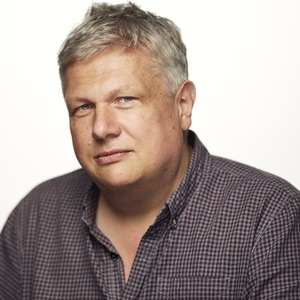You are viewing your 1 free article this month. Login to read more articles.
The author's dilemma
Like founders of startups, authors have difficult decisions to make when it comes to scaling their business.
When I first mentioned to a "tech-bro" friend of mine that I thought being a full-time writer was like running a startup like his, he nearly choked on his craft beer.
Yet, as I move into my second year as a full-time writer, the more I believe it is true. And it helps to explain why so many people dream of being a full-time writer, but why it is so hard to be – and remain – one, especially in 2023.
Obviously, a writer resembles a startup in that they are both prone to hype, promising the world before delivering their product. But the similarities go far deeper than this.
I can still remember the moment just over a year ago when my wife had left for work, my children had left for school, my colleague – the dog – had been walked, and I was left looking at a blank computer screen. Over the previous few years, I had taught part-time while I worked as a freelance journalist and traditionally published my first book.
During that period, my goal had been survival – to somehow stay in the writing game while fitting it around the kind of part-time job that didn’t, by necessity, respect part-time hours. Now, as a bona fide full-time writer there was suddenly too much time, and I had to think in a new way about what I was doing.
Writers are entrepreneurs, and writers are also founders of a one-person startup. Like any founder, I needed to make sure my startup had clear targets. I didn’t think Mark Zuckerberg’s "move fast and break things" worked for a writer, but there was plenty of other advice handed out by founders – such as understand the market, identify your USP, set short-term and long-term targets, and even know what success looks like – which did help me structure my days.
For, yes, I was a founder of a startup, but one in which I must play all the roles myself, from product development to social media, marketing, business development and finance – I am sure I have missed some out – while somehow keeping to the nine-to-five days I was advised to follow to avoid burnout.
There is nothing unusual about this, but it is far removed from what many people believe a writer does. It also feels like there is greater reward for the risk taking in other sectors than as a writer, where the midlist has become a prison rather than a career, the chance of a Sunday Times bestseller feels ever more unlikely and AI is looking over your shoulder.
Luckily, writers don’t have to pitch to venture capitalists (VCs), merely justify their choices to mentors, partners, parents or close friends, which may be worse if they are itching to stage an intervention to stop this madness.
I didn’t think Mark Zuckerberg’s "move fast and break things" worked for a writer, but there was plenty of other advice handed out by founders – such as understand the market, identify your USP, set short-term and long-term targets, and even know what success looks like – which did help me structure my days
I was told quite categorically at a workshop that it was only possible to be a full-time writer if you had a partner with a well-paid job to support you, which of course is true, at least in the beginning, but I think it is more useful to think of it in terms of seed capital, even if this seed capital is your partner’s patience.
For some reason I have never met a VC who wants to invest in a writer. So, as I am sadly not independently wealthy, I was lucky to be able to turn to some of the usual sources, such as "the bank of mum and dad", my partner, and even a timely, bittersweet inheritance, to raise enough seed capital for the short-term freedom to write my next book to the best of my ability, continue to grow alternative income streams, such as script writing, for my solo startup, and survive the sometimes nervy lengthy wait for advances from a traditional publisher and invoices to be paid, without worrying too much about direct debits. An option that is not available to many writers.
But this seed capital must work even harder. It also must support me through the time-consuming – if fun – business of marketing and business development by building a following on social media, running a newsletter, appearing on podcasts, giving lectures – forgetting the time they take to research, write and pitch – and attending events, all of which can be hard to monetise. Let alone the grind of business administration.
The problem is that seed capital, financial or emotional, is not finite – and it is easy to burn through while you are enjoyably chasing targets. Like other founder’s, your burn rate becomes a calculation that your brain likes to churn over in the middle of the night. So, as for many startups, is scaling up the only way for my writer startup to successfully grow?
Scaling up to increase my productivity is hard to do as a writer because unless I employ a ghost writer, I alone can write a book by Mark Piesing. So, the only way to scale up, I believe – finances allowing – is to find skilled freelancers who can do all those time-consuming jobs that cut down the amount of time I can spend each day with my manuscript and other income streams, and quite rightly, these professionals don’t come cheap. Such jobs include research, copy-editing of a manuscript, fact checking, social media management, publicity and accounts. I am sure there are more.
Scaling up to this extent is, of course, an expensive strategy that only the more successful authors can afford to follow. Hiring a publicist to support a book launch can cost as much as the UK average book advance.
So, as I enter my second year as a full-time writer and continue working towards my next book, I face the same dilemma as other founders do. Stick with what is working for me right now and go for break-even – or twist and go for growth and scale-up the Mark Zuckerberg way by trying to raise further funding.
I still haven’t made up my mind. It’s not an easy choice. And it doesn’t help that the realities of these commercial questions for writers are not spoken about often or openly enough.

















